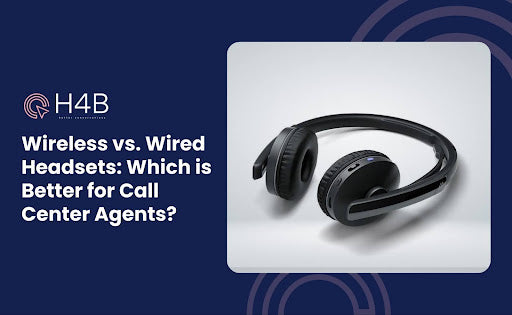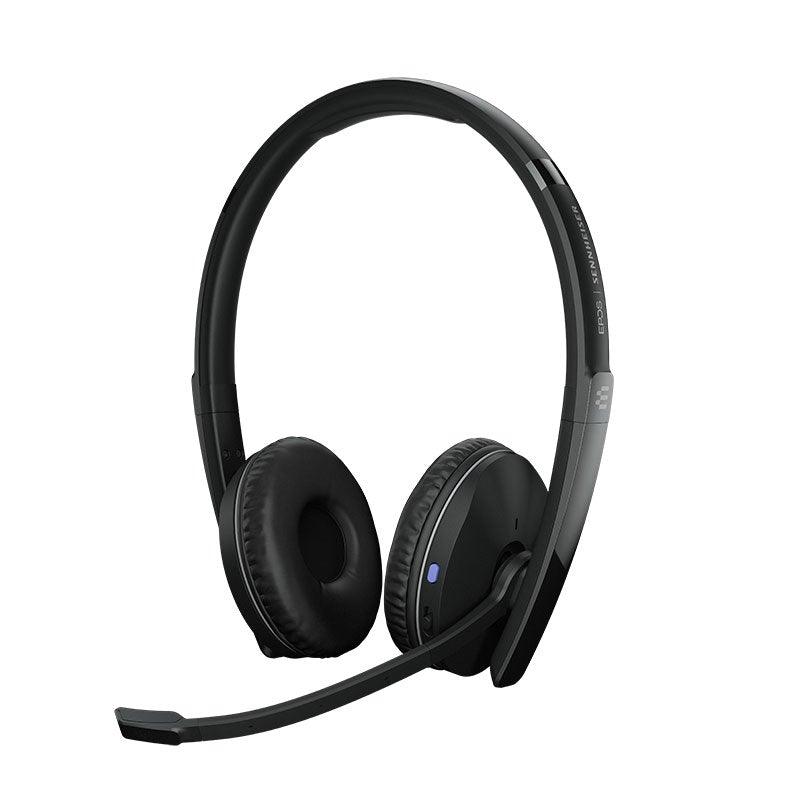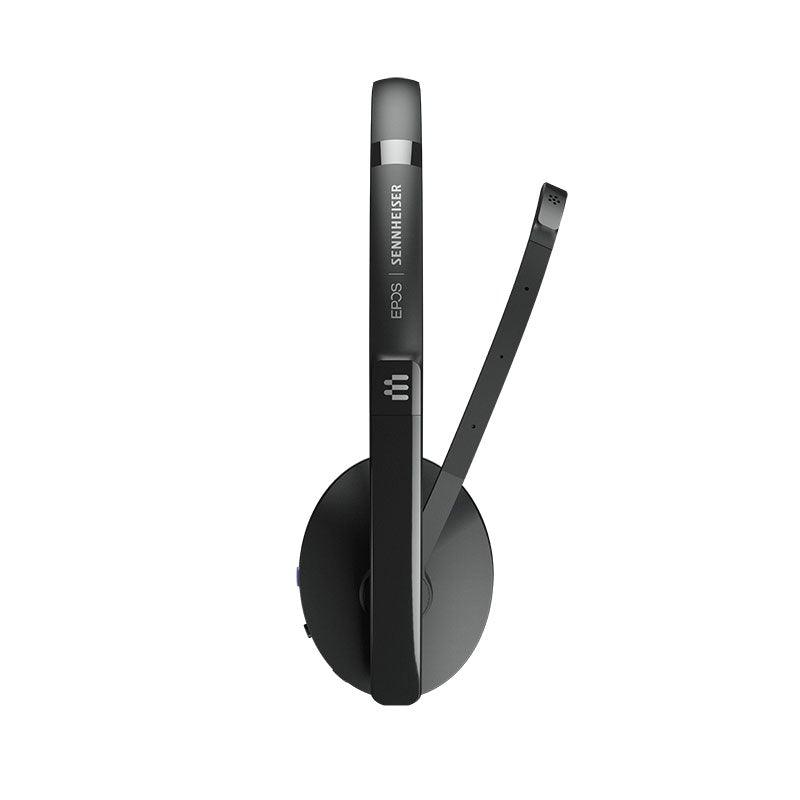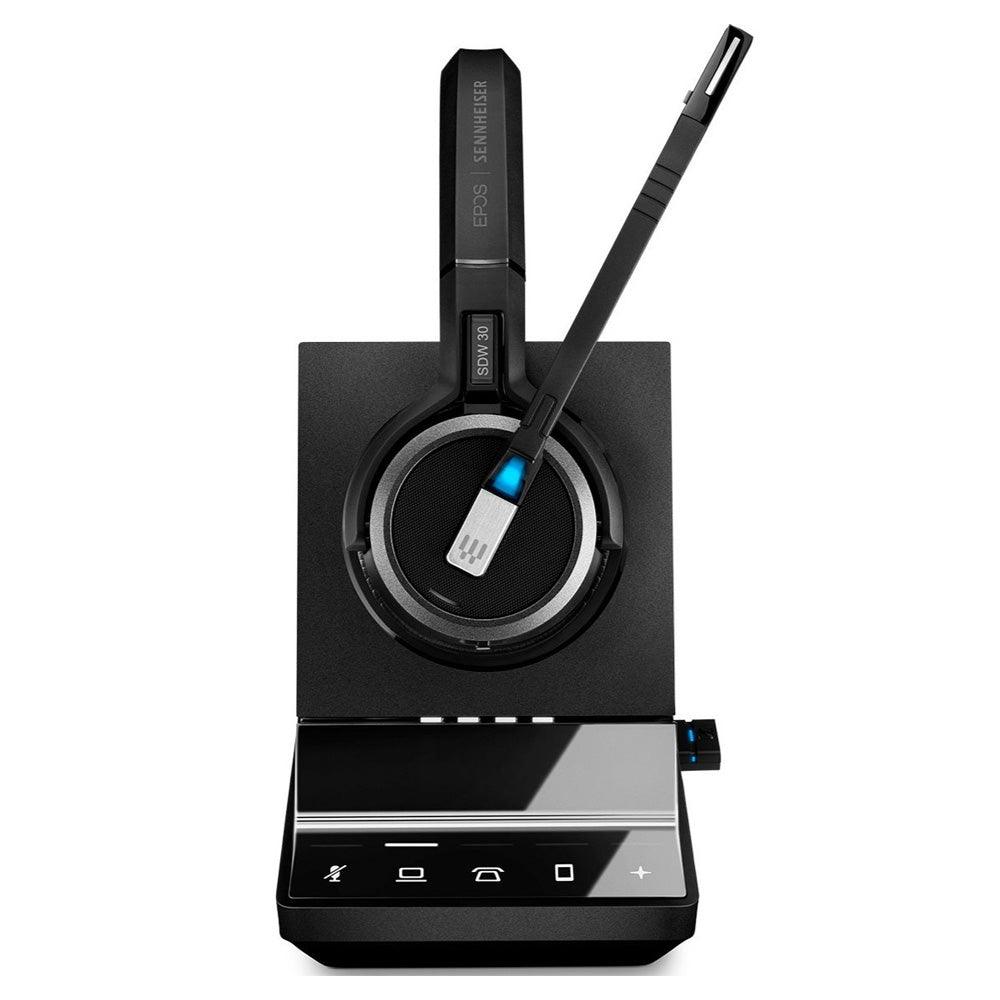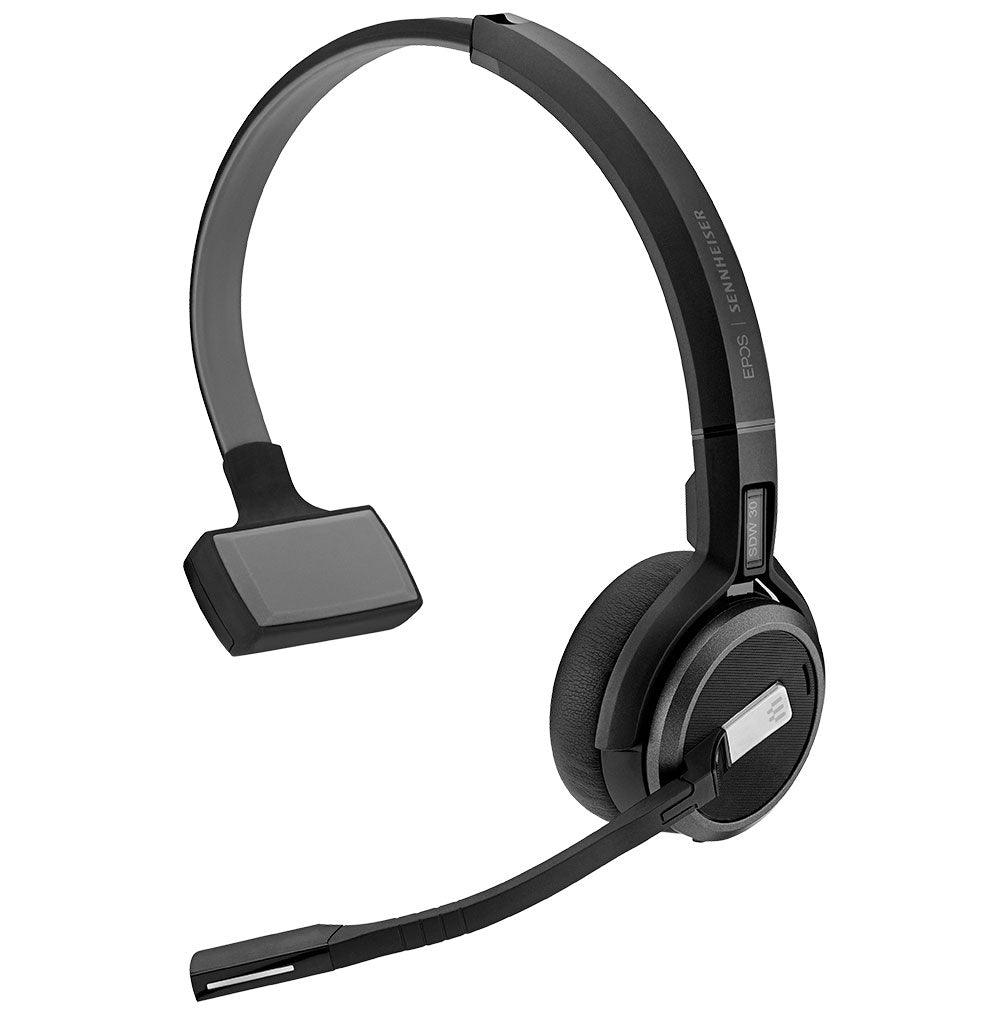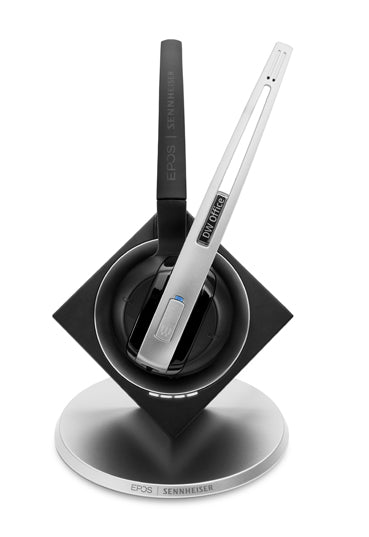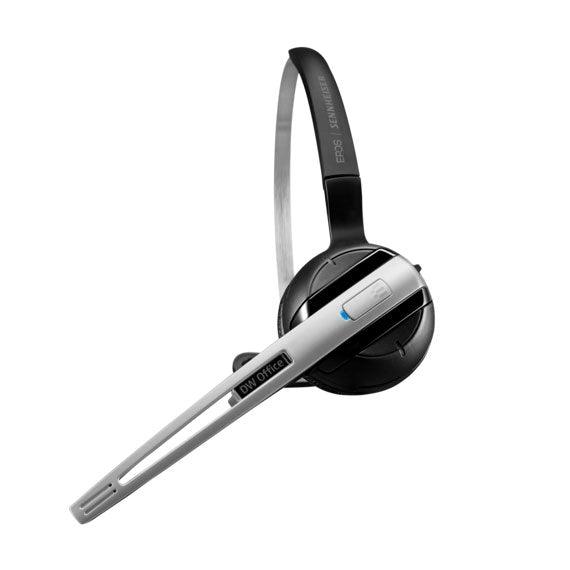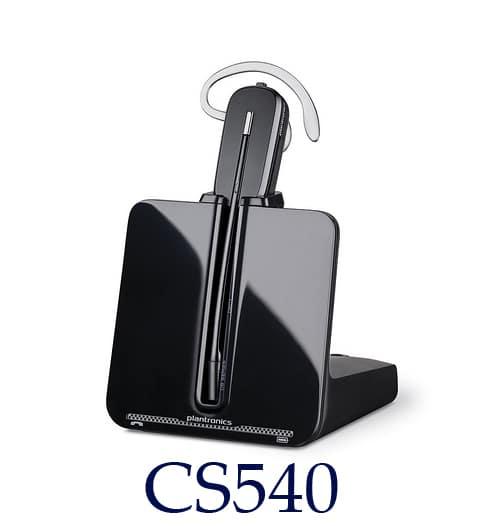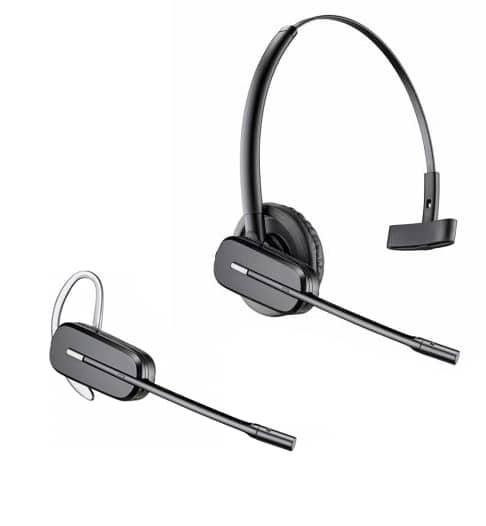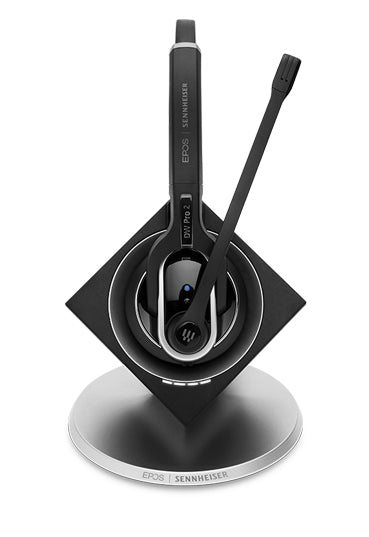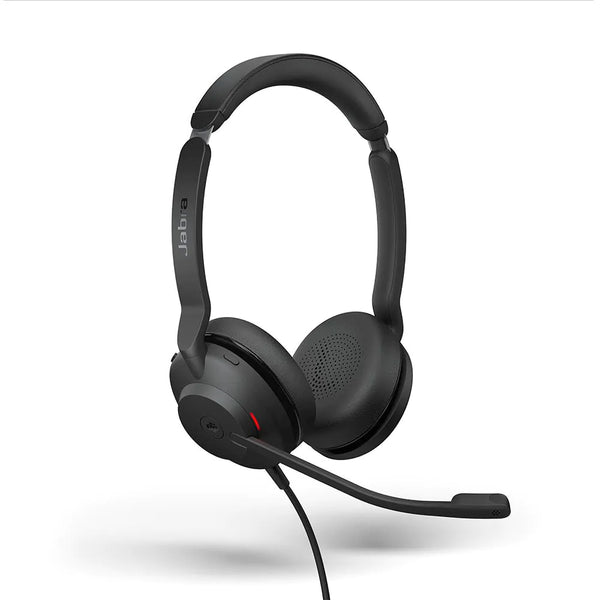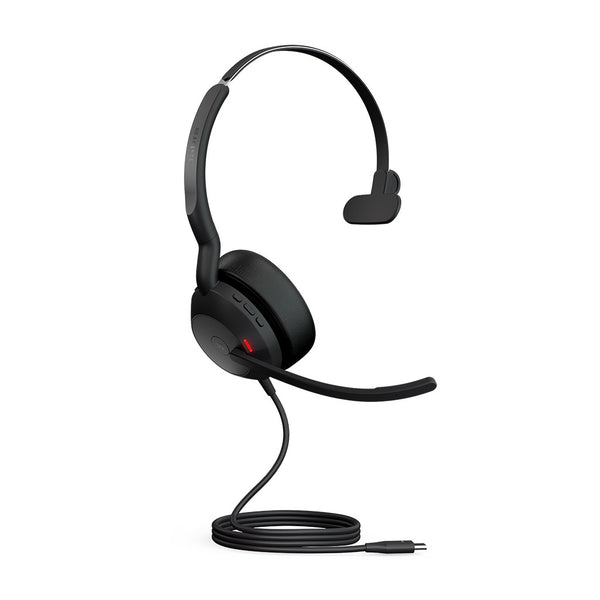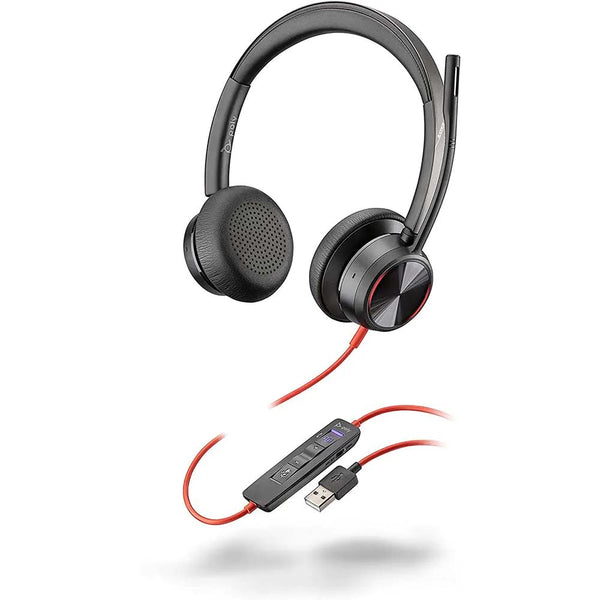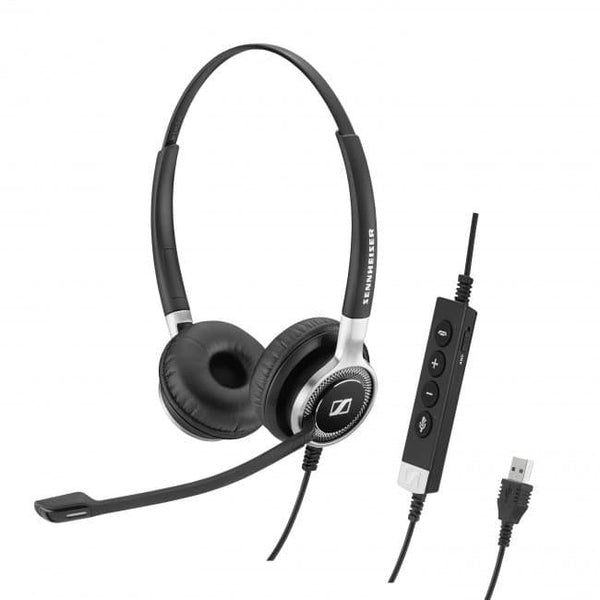Call center agents need reliable headsets to communicate clearly with customers. But should they use wireless or wired headsets? Let's compare the pros and cons of each to help you decide which is better for your call center.
| Key Takeaways |
|---|
|
The Rise of Wireless Headsets in Call Centers
Wireless headsets are becoming more popular in call centers. They let agents move around while on calls, which can make them more productive. Wireless headsets also connect to different devices like desk phones and computers, making them flexible for various setups.
One big advantage of wireless headsets is that they don't have cords that can get tangled or cause accidents. This makes the workplace safer and can save money on replacements in the long run. Wireless headsets often come with advanced features like multi-device connectivity and long-range operation, allowing agents to multitask more effectively.
Top 5 Wireless Headsets for Call Center Agents
1. EPOS ADAPT 261-231 Wireless Bluetooth Headset
This headset charges super fast and can talk for 27 hours. It also has a noise-canceling microphone to block out background sounds. The EPOS ADAPT 261-231 is designed for all-day comfort with its lightweight construction and padded ear cups. Its Bluetooth connectivity allows for seamless switching between devices, making it ideal for agents who need to manage calls from multiple sources. Price: £123.60
2. EPOS IMPACT SDW 5036-5066 Wireless Headset
This headset has great sound quality and two microphones to cancel noise. It can work up to 180 meters away from the base. The EPOS IMPACT SDW 5036-5066 is particularly suitable for busy call centers due to its long-range capability and superior audio quality. It also features hot-swappable batteries, ensuring uninterrupted use during long shifts. Price: £342.00
3. EPOS IMPACT DW Office Wireless Headset
This headset is very good at blocking out noise and is light to wear. You can answer calls from your desk phone without being at your desk. The EPOS IMPACT DW Office features a flexible boom arm for optimal microphone positioning and offers different wearing styles to suit individual preferences. Its DECT technology ensures secure and clear communications. Price: £199.20
4. Plantronics CS540 Wireless Headset
This headset uses DECT technology to work up to 100 meters away. It works with different types of phones and can lift the handset for you. The Plantronics CS540 is known for its reliability and ease of use. It features one-touch call answer/end and volume control, making it efficient for high-volume call environments. Price: £200.40 (Incl. VAT)
5. Sennheiser EPOS DW Pro1 and Pro2 Wireless Headset
This headset is very good at blocking out noise and comes with a 2-year warranty. It works with all types of office phones. The Sennheiser EPOS DW Pro series offers exceptional audio clarity and is available in both single-ear (Pro1) and dual-ear (Pro2) versions to suit different user preferences. Its ActiveGard® technology protects users from acoustic shock. Price: £258.00 (Incl. VAT)
The Case for Wired Headsets in Call Centers
Wired headsets have their own advantages. They usually have better sound quality because the sound travels through a wire instead of the air. They're also more reliable since they don't need batteries or have connection problems. This consistency can be crucial in high-volume call centers where every second of call clarity counts.
Wired USB headsets are often cheaper than wireless ones, which is good if you need to buy a lot for a big call center. They're simpler to use too - just plug them in and they work. This plug-and-play functionality can reduce setup time and technical issues, leading to increased productivity.
Top 4 Wired Headsets for Call Center Agents
1. Jabra Evolve2 30 Wired USB Headset
This headset has a great microphone and is comfortable to wear all day. It's good at blocking out noise too. The Jabra Evolve2 30 features 28mm speakers for rich audio and a 2-microphone system for clear voice pickup. Its foam ear cushions and adjustable headband ensure comfort during long shifts.
2. Jabra Evolve2 50 Wired USB Headset
This headset has even better sound quality than the Evolve2 30. It has big, comfy earcups and is very good at blocking out noise. The Evolve2 50 includes a busy light to signal when the user is on a call, helping to reduce interruptions in open office environments. Its advanced digital chipset provides enhanced audio processing for both incoming and outgoing audio.
3. Poly Blackwire 8225 USB Headset
This headset uses special technology to block out noise. It works well with Microsoft Teams. The Poly Blackwire 8225 features active noise canceling technology and a flexible boom with acoustic fence technology for superior voice clarity. It's certified for use with major unified communications platforms.
4. EPOS IMPACT SC 660 USB Headset
This headset covers both ears, has a microphone that blocks noise, and is built to last. The EPOS IMPACT SC 660 is designed for all-day use with its lightweight construction and soft leatherette ear pads. It features a noise-canceling microphone and wideband audio for natural sound, making it ideal for voice-intensive use in call centers.
Comparing Wireless and Wired Headsets for Call Centers
Let's look at how wireless and wired headsets compare in different areas:
Sound Quality and Reliability
Wired headsets usually have better sound quality because the sound doesn't have to travel through the air. They're also more reliable since they don't need batteries or have connection problems. This consistent audio quality can be crucial for maintaining clear communication with customers, especially in noisy call center environments.
Mobility and Flexibility
Wireless headsets let agents move around more, which can be good for productivity. They can easily step away from their desks to consult with colleagues or access resources without interrupting calls. Wired headsets keep agents at their desks, which might be better for some call centers that prioritize focused, stationary work.
Battery Life vs. Continuous Power
Wireless headsets need to be charged, which can be a problem if the battery runs out during a call. Most modern wireless headsets offer long battery life, but it's still a factor to consider in 24/7 operations. Wired headsets don't need charging, so they're always ready to use, eliminating any concerns about power management during long shifts.
Initial Cost and Long-term Value
Wireless headsets usually cost more at first, but they might last longer because there's no cord to break. This can be particularly beneficial in high-traffic call centers where cord damage is common. Wired headsets are cheaper to buy but might need to be replaced more often. However, their simplicity often means lower maintenance costs over time.
Compatibility and Integration
Both types of headsets can work with different phone systems, but you should check to make sure they'll work with your specific setup. Wireless headsets often offer broader compatibility with various devices, which can be advantageous in modernizing call centers. Wired headsets, especially USB models, typically offer plug-and-play functionality with most computer systems.
Factors to Consider When Choosing Between Wireless and Wired Headsets
When deciding between wireless and wired headsets for your call center, think about:
- Your call center's layout and how much agents need to move around
- What kind of work your agents do - do they need to multitask or stay focused at their desks?
- How much money you can spend, both initially and for ongoing maintenance
- What kind of computer systems and phones you use, and their compatibility requirements
- The level of background noise in your call center and the need for noise cancellation
- The average duration of calls and shifts, which can impact the importance of battery life
Future Trends in Call Center Headset Technology
Call center headsets are getting better all the time. Here are some new things to look out for:
- AI that's even better at blocking out noise, improving call clarity in noisy environments
- Headsets that work better with call center software, offering seamless integration and analytics
- Wireless headsets with longer battery life and faster charging capabilities
- Advanced ergonomic designs for improved comfort during long shifts
- Enhanced voice recognition features for more efficient call routing and transcription
If you want to try out some new headsets, you can get a free trial from some companies. This can be an excellent way to test different models in your specific call center environment before making a large investment.
Conclusion: Making the Right Choice for Your Call Center
Choosing between wireless and wired headsets depends on what your call center needs. Wireless headsets are good if your agents need to move around a lot, but wired headsets might be better if you want reliability and lower costs. Think about your budget, how your call center works, and what features are most important to you.
Remember, the best headset is the one that helps your agents do their job well and keeps your customers happy. Whether you choose wireless or wired, make sure to get headsets that are comfortable and have good sound quality. Consider factors like noise cancellation, durability, and compatibility with your existing systems.
Key Points for Call Center Headsets
- Mobility: Wireless headsets offer freedom of movement, while wired headsets are better for stationary work
- Reliability: Wired headsets are generally more reliable, while wireless may have interference or battery issues
- Cost: Wired headsets often have a lower initial cost, but wireless may save money long-term due to less cord damage
- Sound Quality: Look for clear audio and effective noise cancellation for both agent and customer
- Comfort: Choose headsets designed for extended wear to reduce agent fatigue
- Compatibility: Ensure headsets work well with your call center software and systems
- Battery Life: For wireless options, consider models with longer battery life to avoid interruptions
- Try Before You Buy: Take advantage of free trials to test different headset options in your call center environment
No matter which type you choose, investing in good headsets can make a big difference in how well your call center works. Happy agents and clear calls lead to happy customers! Consider conducting regular assessments of your headset needs as your call center evolves, and don't hesitate to upgrade or switch types if it will improve your overall operations and customer satisfaction.

